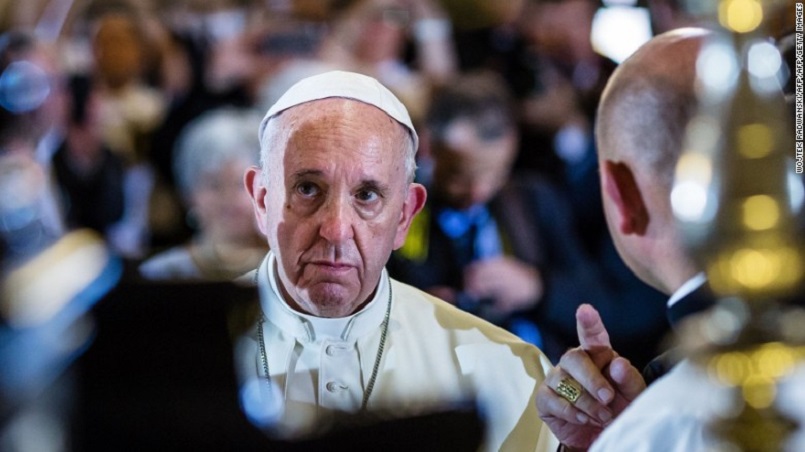
Pope Francis is showing his love for outsiders again -- this time by turning some of them into the ultimate insiders.
He's appointing a batch of new cardinals on Saturday, reshaping the group that will someday choose the next pope.
Many of the new men come from lands far distant from Rome: Three are from Africa, two from Asia, one from Oceania, and one from the Middle East. All represent places where the Catholic population is in the minority.
Meanwhile, some major cities usually led by a cardinal -- including Los Angeles and Philadelphia -- are being bypassed this time around.
Some things will not change. Europe will continue to dominate geographically, and the College of Cardinals isn't getting much younger: The most common age for a cardinal is 83.
But in his 3½ years as Pope, Francis has put in place nearly a quarter of the cardinals, the "princes of the Church." (John Paul II still exerts huge influence: Four out of 10 current cardinals were appointed during his papacy.)
Confronting Christian-Muslim violence
In part, Francis has chosen men who are involved in a daily battle with poverty, violence and religious conflict.
Dieudonne Nzapalainga, 49, will become the first cardinal from the war-torn Central African Republic, one of the poorest countries in the world. He'll also be the youngest of the 229 members of the College of Cardinals.
Nzapalainga is known as one of the "saints of Bangui" for his efforts to calm Muslim and Christian militia violence in a fight over the Central African Republic's important diamond and mineral resources. Pope Francis visited the capital of Bangui in 2015.
In Bangladesh, Patrick D'Rozario, 73, leads a small Catholic population of around 350,000 in the Muslim-majority country of 153 million. As the archbishop of Dhaka, D'Rozario was on the front lines when a deadly terror attack struck the capital in July. Francis plans to visit Bangladesh in 2017.
Francis is also shining a spotlight on Syria by appointing his Italian-born ambassador to Damascus, Mario Zenari, a cardinal. The Pope says the appointment shows his closeness to the "beloved and martyred Syria."
Papua New Guinea, in Oceania, is threatened by climate change, and Cardinal-elect Archbishop John Ribat has been an outspoken proponent of reducing carbon emissions.
Unexpected American choices
The United States has three new cardinals, but even these, it might be said, come from the peripheries.
Francis made a surprise appointment in Monsignor Joseph W. Tobin, from Indianapolis, who will become the Cardinal of Newark, New Jersey, a city that has never before had a cardinal. Tobin will replace Archbishop John Myers, who came under criticism over his handling of sex abuse cases and for excessive spending on his residence.
In Chicago, the Pope surprised many when he appointed an outsider, Blase Cupich, in September 2014 to lead the archdiocese. Cupich was also appointed to be a special delegate to the Synod of Bishops on the family in 2015, and he was seen to be in the progressive camp on divorced and remarried Catholics and outreach to the lesbian, gay, bisexual, and transgender community.
The Irish-born Monsignor Kevin Joseph Farrell, the former bishop of Dallas, has been appointed to lead the Vatican's new office for laity, family and life.
Creating cardinals is an important way for the Pope to leave his stamp on the Catholic Church.
Francis' choices show a move away from traditional conservative-liberal theological categories and toward men who are doing practical work of helping the poor, immigrants and the planet.
